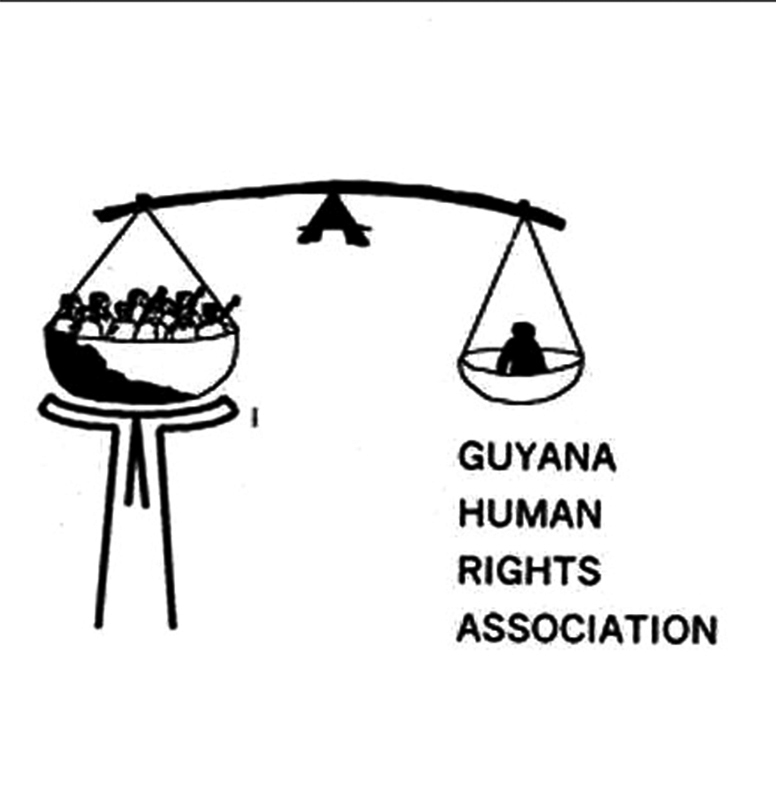The Guyana Human Rights Association (GHRA) yesterday called on the government to pause a proposed US$34m e-governance programme and to submit it to Parliament.
On March 10th, the government hurriedly announced the virtual signing of the deal with a German company and the United Arab Emirates acting as an intermediary. Critics have pointed out that the deal is a flagrant violation of the country’s procurement laws and has been concluded without the requisite privacy and data security laws in place. A key feature of the deal would be an electronic ID card that consolidates the data of the holder, providing for easier access to public and private sector services.
In a statement, the GHRA said that the signing of a pact for e-governance “without the framework legislation covering Data Protection being in place, is reckless in the extreme. Given the haste, absence of public consultation and threats to the integrity of personal information, not to mention the seeming illegality of sole-sourcing the project, the Guyana Human Rights Association … is calling for the project to be paused and submitted to Parliament”.
The GHRA said that Guyana is unique in the Caribbean at present in having no electronic transactions Act to take the place of the time-consuming and stressful paper-based procedures, for example, in registering births and deaths, opening a bank account or registering a company.
For a number of years, the GHRA said that CARICOM countries have been holding serious consultations on Data and Privacy Protection legislation on vital matters such as terms of consent, data sharing by Government agencies and the ‘right to be forgotten’, among others. The human rights body said that all of this is sidelined by a Government dazzled by the prospect of `e-health, e-education, e-security, e-agriculture, electronic permits, and license processing, etcetera’.
According to the Tech Transactions & Data Privacy 2022 Report, published in the recent edition of The National Law Review, the GHRA said that “businesses are increasingly pivoting to digital service models that leverage the internet in place of in-person transactions.”
The GHRA said that the key democratic and ethical issues associated with adoption of such legislation is the misuse of data transferred internationally by countries and multinational companies. It said that the European Union, for example, recognizes only thirteen countries to which data may be transferred safely, the United States not being one of them. Apart, therefore, from the practical challenges entailed by digitalization, the GHRA underlined that there are also human rights concerns in relation to protection of personal and nationally sensitive data.
“Contrary to the caution required in this area Guyana’s transition from a state of electronic illiteracy to a digital world is being placed (and if sole-sourced, illegally) in the hands of foreign private companies, apparently orchestrated by the United Arab Emirates, tarnished by its illegal gold transactions”, the GHRA said.
Adverting to press reports on the deal, the GHRA said that the technical suitability of the company and programme was determined by the National Data Management technicians, raising the question: why in light of the country’s digital backwardness to date, better informed expertise was not sought from experienced impartial sources.
An equally vital issue it said is the systematic global under-estimating of costs of major Information and Communications Technology ICT infrastructure projects and the likelihood of sky-rocketing prices down the road.
“The most prudent course of action would be for Guyana to engage with CARICOM in an effort to ensure that this new project harmonizes with and benefits from the Parliamentary experience of CARICOM States such as Barbados, Trinidad and Jamaica. Indeed, as a gesture of regionalizing Guyana’s new-found wealth Guyana’s Parliament should offer to fund a digitization process in CARICOM”, the GHRA said.
The German company, Veridos has been selected for the project.
Speaking at the virtual signing on March 10th, President Irfaan Ali said that “Given the Government of Guyana’s commitment to promote e-governance in order to improve the productivity of businesses and delivery of government services through e-health, e-education, e-security, e-agriculture, electronic permits, and licence processing, et cetera, there is an immediate need to implement a robust national identity management system, one that focusses on the integration of identification services across government agencies, security ease of use and acquisition of IDs”.
He added: “By so doing, This ID system will improve access to all citizen-centric government services and benefits the citizens, private sector, and government alike. This will bring us in line with solutions used by the most developed economies and position Guyana to be a competitive sphere, in a world that is moving [and] advancing drastically along a technological landscape”.
In yesterday’s Stabroek News, former Auditor General Anand Goolsarran said that the award of the contract violated the country’s Procurement Act.






